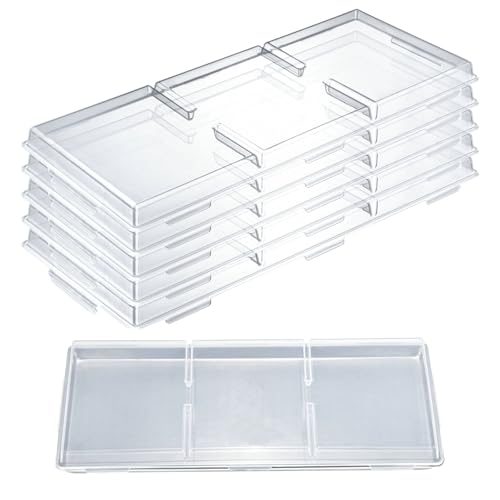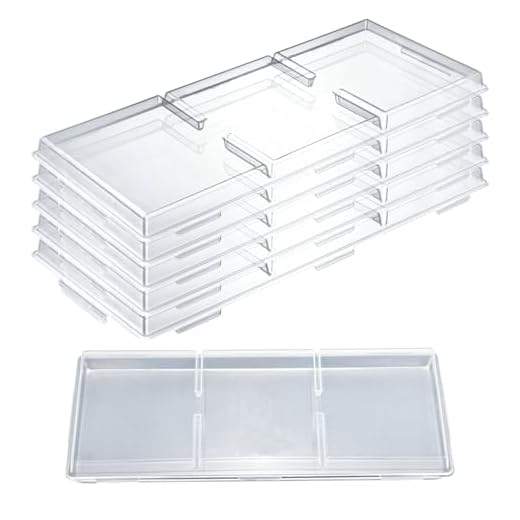



Overfilling a freezer is a common mistake that many people make, but is it possible for this simple act to actually break the appliance?
Freezers are designed to hold a certain amount of food and maintain a specific temperature. When we overfill them, we run the risk of obstructing air circulation and preventing proper cooling. The consequences can include warmer temperatures inside the freezer, resulting in food spoilage and even potential damage to the freezer itself.
One of the main concerns when overfilling a freezer is the limited airflow. Absence of proper air circulation can lead to uneven cooling, potentially causing certain areas of the freezer to become warmer than others. This can result in thawing and refreezing of the food, leading to loss in quality and increased risk of foodborne illnesses.
Additionally, overfilling a freezer can put stress on the appliance’s compressor, which is responsible for maintaining the desired temperature. When the compressor is overworked, it may fail to cool the freezer effectively, resulting in higher energy consumption and potential breakdown of the appliance.
In conclusion, while overfilling a freezer may not directly break it, it can lead to a range of problems including inadequate cooling, food spoilage, increased energy consumption, and potential damage to the freezer’s components. Therefore, it is important to avoid overpacking your freezer and ensure proper airflow for optimal performance and longevity.
Signs That You’ve Overfilled Your Freezer
Overfilling a freezer may seem like a convenient way to store more items, but it can lead to various issues and even damage the freezer itself. Here are some signs that you’ve overfilled your freezer:
Frost Build-up
One of the first signs that your freezer is overfilled is the presence of excessive frost build-up. When a freezer is packed too tightly, the air circulation becomes limited, causing moisture to accumulate and form frost on the walls and around the items stored. This build-up of frost reduces the cooling efficiency and can eventually lead to freezer burn on the stored food.
Poor Temperature Regulation
An overloaded freezer may struggle to maintain a consistent temperature. With limited space for air circulation, the freezer’s cooling system has to work harder to keep the items frozen. As a result, the temperature may fluctuate, leading to inconsistent freezing and thawing cycles. This can negatively impact the quality and longevity of the stored food.
Increased Energy Consumption
When a freezer is overfilled, it requires more energy to maintain the desired temperature. The restricted air circulation and extra load of items cause the compressor to run more frequently and for longer durations. This increased energy consumption not only leads to higher utility bills but can also shorten the lifespan of the freezer.
Difficulty in Organizing and Finding Items
Overfilling a freezer can make it challenging to organize and locate specific items. With limited space and items crammed together, it becomes harder to keep track of what you have and find what you need. This can result in food waste as items are buried and forgotten, leading to unnecessary duplication of purchases.
It is important to ensure that your freezer is not overfilled. By maintaining a proper balance and leaving enough space for air circulation, you can prolong the lifespan of your freezer and preserve the quality of your frozen food.
The Potential Risks of Overfilling Your Freezer
Overfilling your freezer may seem like a convenient way to save space and store more food, but it can actually pose several risks and lead to potential problems. Understanding these risks can help you make better decisions when it comes to organizing your freezer.
1. Poor Air Circulation: When a freezer is filled beyond its capacity, there is limited space for air circulation. This can cause uneven cooling and result in certain areas of the freezer being colder than others. The lack of proper air circulation can also lead to condensation and the formation of ice on the walls of the freezer.
2. Reduced Energy Efficiency: An overfilled freezer has to work harder to maintain its temperature, leading to increased energy consumption. This can result in higher energy bills and unnecessary strain on the freezer’s cooling system. Additionally, the excess items may obstruct the freezer’s vents, reducing its cooling efficiency even further.
3. Decreased Food Quality: Overfilling a freezer can impact the quality and safety of the stored food. The uneven cooling caused by overcrowding can lead to temperature fluctuations, causing some items to spoil more quickly than others. It can also make it challenging to organize and locate items, leading to food waste as items get forgotten or buried under other items.
4. Potential Damage to the Freezer: When a freezer is packed tightly, there is a risk of damaging the internal components. The excess weight can strain the freezer’s shelves and drawers, causing them to crack or break. This can result in the need for costly repairs or even the replacement of the freezer altogether.
In conclusion, overfilling your freezer may seem like a temporary solution for storage, but it can lead to a variety of risks and problems. It’s important to keep in mind the impact on air circulation, energy efficiency, food quality, and the potential damage to your freezer. Properly organizing and not exceeding the freezer’s recommended capacity can help maintain its performance and prolong its lifespan.
Tips for Properly Organizing Your Freezer
Properly organizing your freezer can help you maximize its storage capacity and keep your food fresh for longer periods of time. Here are some tips to effectively organize your freezer:
| Categorize your food | Separate different types of food into categories. Use containers or bags to keep them organized and to prevent cross-contamination. |
| Maximize space | Make the most out of your freezer space by using stackable containers or freezer bags. Consider using freezer-safe bins or baskets to group similar items together. |
| Label items | Label your frozen items with the date of freezing. This will help you keep track of their freshness and ensure that you use them within the recommended time frame. |
| Create an inventory | Keep a list of the items stored in your freezer. This will make it easier for you to plan your meals and minimize waste by using what you have before buying more. |
| Arrange items strategically | Place frequently used items toward the front of the freezer for easy access. This will help you avoid digging through the freezer and causing disorganization. |
| Use drawers and shelves efficiently | Utilize the different drawers and shelves in your freezer to separate and organize various types of food. Keep raw meats together and store delicate items away from heavier items. |
| Defrost regularly | Regularly defrost your freezer to maintain its efficiency and prevent ice buildup. Follow the manufacturer’s instructions on how to defrost your specific model. |
By following these tips, you can ensure that your freezer remains organized, allowing for easy access to items and prolonging the freshness of your frozen foods.
Maintaining Your Freezer’s Efficiency
Proper maintenance of your freezer is essential for ensuring its efficiency and longevity. By following these simple steps, you can keep your freezer running smoothly and avoid any potential issues.
Keep it Clean
Regularly cleaning your freezer is crucial for maintaining its efficiency. Dust and debris can accumulate on the coils and vents, hindering airflow and causing the compressor to work harder. Wipe down the interior and exterior with a mild detergent and water solution, and vacuum the coils and vents regularly to remove any dirt or dust.
Arrange Items Properly
Efficiently organizing your freezer can make a significant difference in its performance. Properly arranging items allows for better air circulation and helps maintain a consistent temperature. Place bulkier items towards the bottom and lighter items towards the top. Use storage bins or baskets to keep similar items together and make it easier to find what you need.
| Do’s | Don’ts |
|---|---|
| Keep the freezer at least three-quarters full to help maintain low temperatures during power outages. | Overfill the freezer, as it can restrict airflow and prevent proper cooling. |
| Regularly check the temperature and ensure it remains between 0°F and -10°F (-18°C and -23°C). | Keep the freezer in an area with excessive heat or direct sunlight, as it can strain the compressor and decrease efficiency. |
| Defrost the freezer regularly, especially if ice buildup exceeds 1/4 inch (0.6 cm). | Leave the freezer door open for extended periods, as it can cause frost buildup and increase energy consumption. |
By following these maintenance tips, you can maximize your freezer’s efficiency and keep it running smoothly for years to come.
FAQ
Can overfilling a freezer cause it to break?
Yes, overfilling a freezer can cause it to break. When a freezer is overfilled, there is not enough room for air to circulate properly, which can lead to uneven cooling and increased strain on the refrigerator’s compressor. This can result in the compressor overheating and potentially breaking down, leading to a malfunctioning freezer.
What are the risks of overfilling a freezer?
Overfilling a freezer can lead to several risks. Firstly, it can impede the airflow within the freezer, resulting in uneven cooling and potential food spoilage. Secondly, it can put excessive strain on the freezer’s compressor, as it has to work harder to maintain the desired temperature. This increased strain can cause the compressor to overheat and possibly break down, requiring costly repairs or replacement.
How full can I safely fill my freezer?
It is generally recommended to fill a freezer up to about 75-80% of its total capacity. This allows for proper airflow and ventilation, ensuring even cooling throughout the freezer. Keeping some empty space also gives room for the cold air to circulate, preventing any potential build-up of ice or frost. It is important to follow the manufacturer’s instructions and guidelines for your specific freezer model.
Why is it important to leave empty space in a freezer?
Leaving empty space in a freezer is important for several reasons. Firstly, it allows for proper airflow and ventilation, ensuring even and efficient cooling of the stored food. Secondly, it prevents the freezer’s compressor from being overloaded and overheating, as it has to work harder when the freezer is overfilled. Additionally, having some empty space allows for expansion and movement of frozen items, reducing the risk of them getting stuck or damaged.
What can happen if I overfill my freezer for an extended period of time?
If a freezer is overfilled for an extended period of time, it can lead to various issues. Firstly, the uneven cooling caused by limited airflow can result in some areas of the freezer being colder than others, leading to potential freezer burn or food spoilage. Secondly, the increased strain on the compressor can cause it to overheat and fail, resulting in a malfunctioning freezer. It is important to maintain proper ventilation and follow the recommended storage capacity guidelines to prevent these issues.










